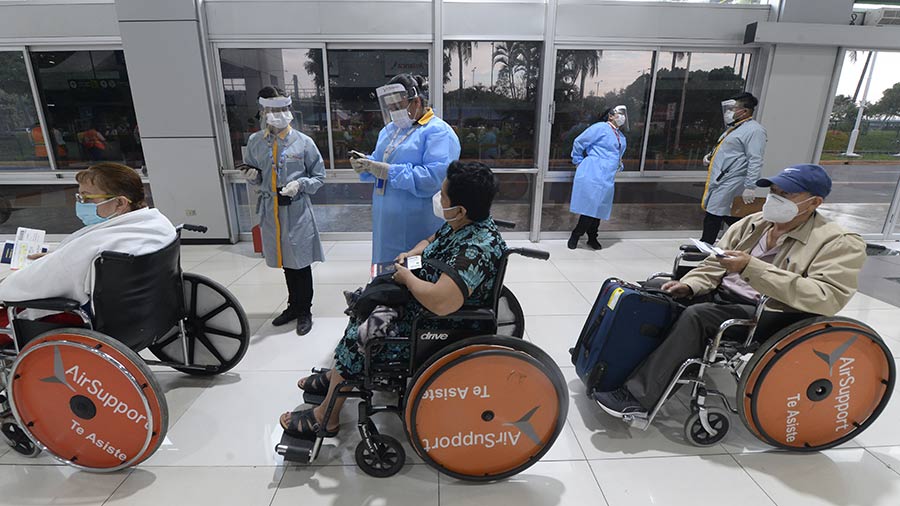
So far it has not been defined how long the flights will be banned and it has not been worked out whether there is a repatriation plan for Salvadorans living in these countries.
President Nayib Bukele reported late through his Twitter account that due to infections from the new strain of SARS-CoV-2 in the UK and South Africa, he banned flights from those countries and asked Salvadorans to travel in Europe are “Return to El Salvador in the coming weeks” before “new restrictions need to be imposed”.
In view of the Bukele publications and the press conference of the Health Cabinet, some doubts arise:
What restrictions?
So far only the restriction of flights from the UK and South Africa is known, including people who have been to those countries.
“From now on, anyone whose flight route includes the UK or South Africa or who has been in either of those two countries in the past 30 days will no longer be allowed to enter our country,” said a tweet from the agent.
However, at Sunday afternoon’s press conference, Presidential Commissioner Carolina Recinos assured that she “will not deny entry to any Salvadorans,” but “deny entry to flights coming from those countries.”
No further restrictions are known so far.
Given this comment, another question arises: What will happen to the Salvadorans currently in those countries?
Bukele noted, “Salvadorans who are in Europe who want to return to El Salvador in the coming weeks are advised to speed up their itineraries as much as possible.”
Considering this, one can think that Salvadorans will be stranded, just like it happened months ago when the Monseñor Romero International Airport was closed, and that compatriots who decide to return will have to be in a detention center. However, the authorities have not mentioned either option or a repatriation plan for Salvadorans in Europe.
In return, Recinos assured that any inconvenience people have will be the airlines responsible for resolving it.
“If those brothers have a hard time, they will have to do it with the airlines,” he said.
What is the legal protection that the government has to exercise this provision?
Both Recinos and Health Minister Francisco Alabí were questioned about the documentation or legal instrument that empowers the government to restrict flights, strand Salvadorans or prevent their entry, but none of the officials answered the question.
However, El Salvador has a legal instrument that guarantees Salvadorans’ access to the country. Article 5 of the Constitution states that “no Salvadoran may be expatriated, nor prohibited from entering the territory of the Republic, nor denied a passport for their return or other identification documents.
Last September, the Constitutional Chamber of the Supreme Court (CSJ) ruled that “No authority can deny entry into the territory to Salvadorans who arrive at San Óscar Arnulfo Romero y Galdámez International Airport, or at any other point authorized to travel from abroad. To enter, do not submit the PCR that gives COVID-19 negative, as this would in practice imply a ban on entering the country.
The magistrates of La Sal also warned that “the ban on the entry of Salvadorans and permanent residents of foreigners in the conditions outlined would, if it materializes, run counter to the above precautionary measure and therefore will have no effect.
Why was the decision made?
Bukele’s decision came after several European countries started banning flights from the UK this Sunday, following the discovery of a more contagious variant of the coronavirus that is spreading ‘out of control’ in that country and which the WHO asked for “Turn controls On”.
What about the new species?
According to international media, UK government scientists have determined that there are 17 linked mutations in the genetic code of the virus that suggest this newly discovered strain is more contagious and spreads more easily.
The government’s scientific director, Patrick Vallance, has indicated that the species – known as VUI 202012/01 – could have originated in London or Kent (South East English) in September.